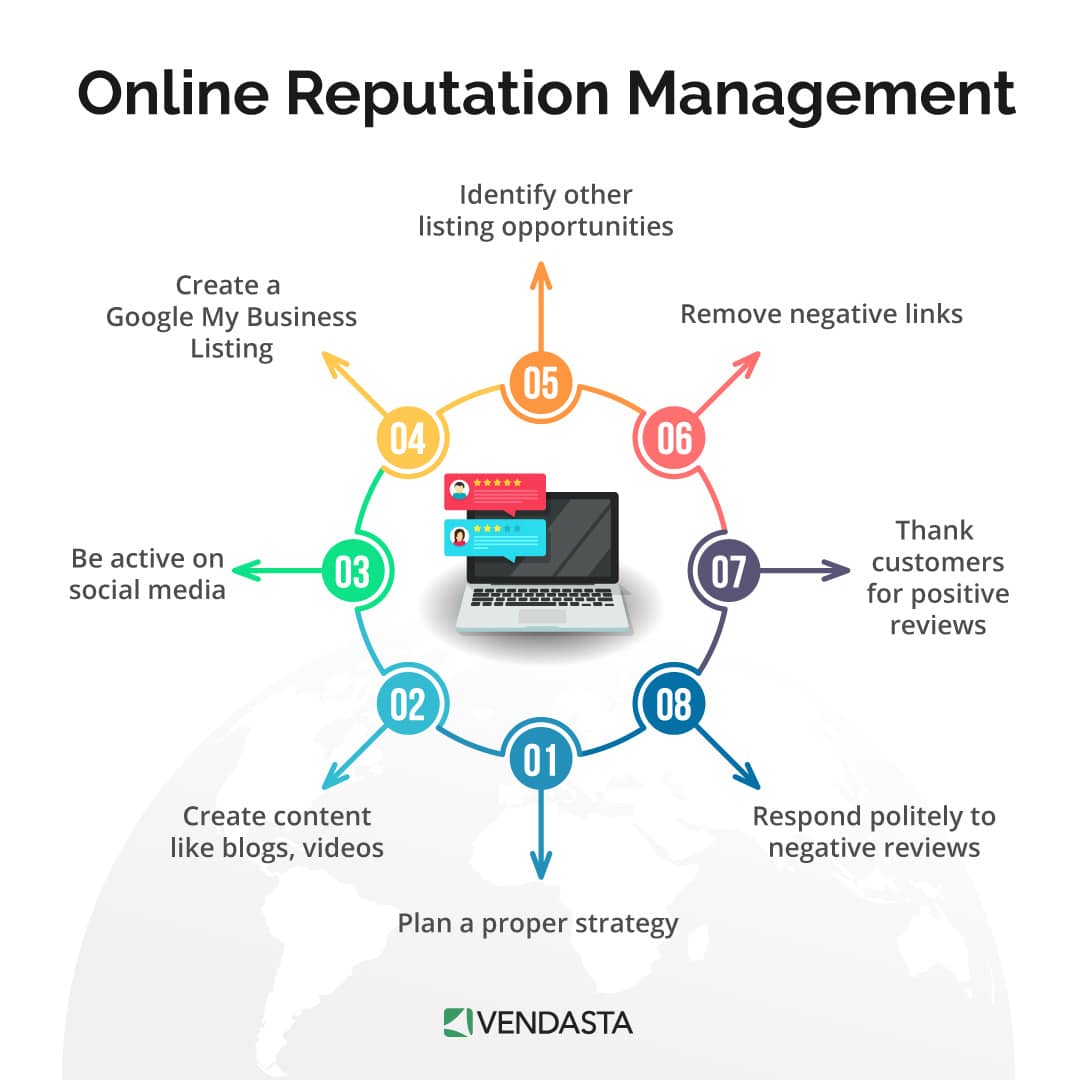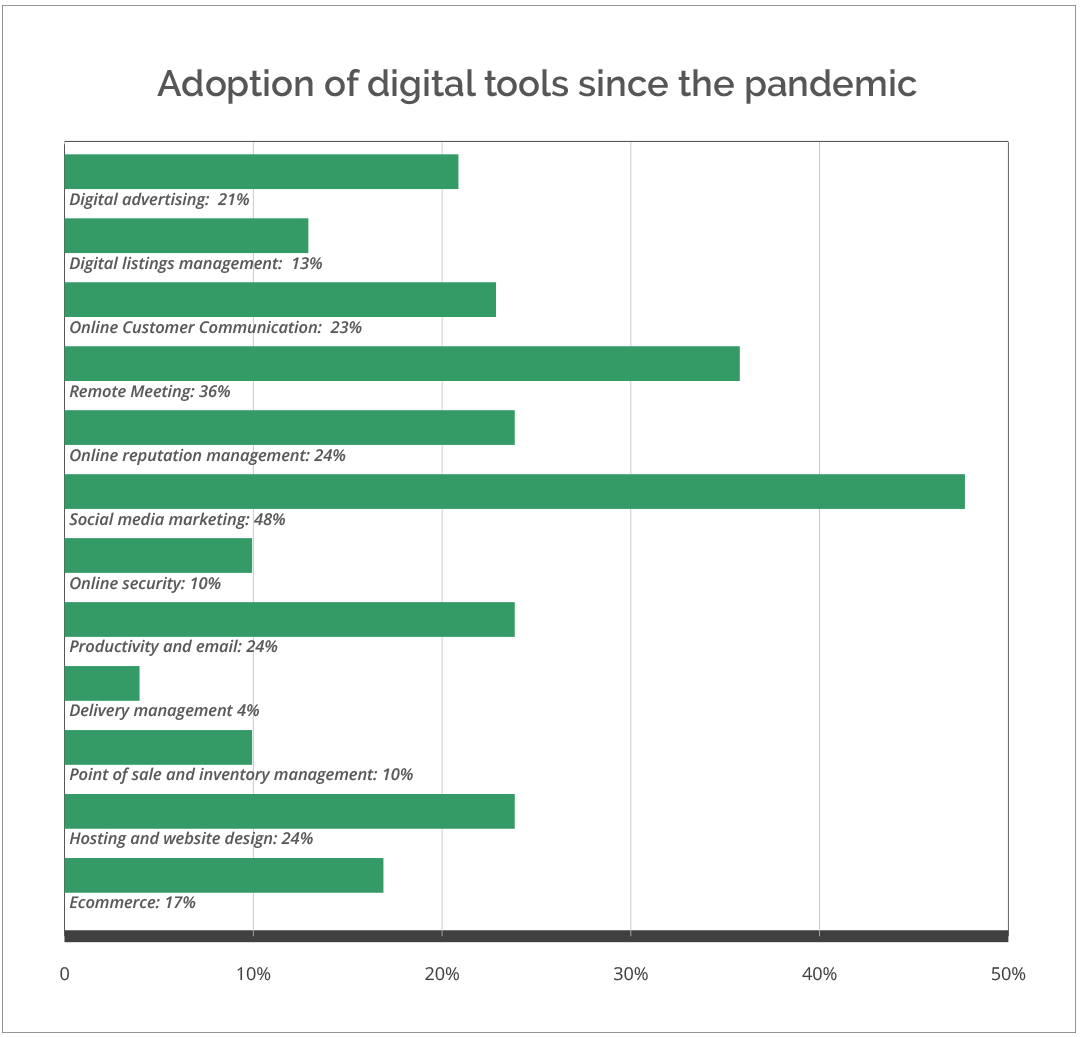Why online reputation for ecommerce SMBs and what are the top online reputation management tools?
Webopedia defines online reputation as the consensus public opinion of an individual or organization based on their online presence and dependent on both their behavior and the subjective thoughts of observers or customers. Online reputation management could thus be defined as having a strategy to take control of the online conversation around your business using tools and technologies so that people find the right materials when they look you up on the Web.
“Having good reviews as well as positive mentions and engagements online is a compound investment in your brand,” says Dani Wawryk, director of corporate marketing and communications, Vendasta.
“Anyone can use their voice to recommend or criticize a business in front of thousands of people with the click of a button, and they can do it at any time of day. It’s important to understand the good, the bad, and the ugly conversations about your business online. I would suggest that business owners respond to any questions or reviews that surface with empathy, understanding, and quick action. This allows other customers to see how your business reacts when something goes wrong,” she adds.
Want to Know How to Respond to Positive and Negative Reviews? Read this blog
Why online reputation management for ecommerce?
It’s important for businesses to invest money and time into social listening to ensure they keep tabs on these conversations and can act fast. Get started by simply setting up a Google Alert for your brand name and by using a social listening tool (like Social Marketing from Vendasta).
Online reputation management is a must for ecommerce businesses, especially small businesses who battle big brands. A good online reputation earns trust and customers. A bad reputation for a small-and medium-sized business (SMB) could be a death knell for losing customers or even downranking on Google.
Why Reputation Management Matters: A Vendasta Churn Analysis on 100k+ SMBs
“Building trust is something that needs to be worked on every day. Losing trust is something that can happen in an instant. By investing time into developing your reputation, customers will be more forgiving if something goes wrong,” Wawryk says.
Top online reputation management tools
Online reputation management can be a tedious job and most SMBs don’t know how to go about it. Online reputation management software lets agencies and businesses monitor online reviews from customers, and take corrective measures. Here we take a look at some of the best online reputation management tools available in the market today that local ecommerce SMBs can use.
Also Read: What are the Top Online Advertising Tools for Small Businesses?
Yext
Yext Reviews is a customer-centric reviews management program that monitors and analyzes reviews across its Knowledge Network, engaging customers through response and generating authentic reviews directly from them. Its AI-powered Answers Platform understands natural language so that when people ask questions about a business online they get direct answers – not links. Its review monitoring software helps you stay informed and improve customer relationships, intelligent review response helps you engage with customers to improve their experience, while the notification tool automatically filters and sets up alerts for incoming reviews that may need more action. A user can use the Yext platform to analyze customer feedback to understand how it’s impacting their ratings and reviews. It also helps in understanding how various locations are performing across geographies, and even how these locations stack up against the competitors.
Podium
Podium’s solutions are designed to help improve your online ratings, build your reputation, and get found by sending review requests via text to recent customers, responding to and interacting with reviewers, and managing it all from a single inbox. Podium collects reviews for you on websites that matter most. Podium’s Interaction Management platform uses messaging to make it convenient to interact with your leads, customers, and team at every customer touchpoint. You can reach your customers wherever they are, connect with new website visitors, request for reviews, collect payments, and capture leads all from a single inbox.
Birdeye
Birdeye is an all-in-one platform to drive customer acquisition and used by more than 60,000 businesses to increase their online presence through listings and reputation management. Birdeye provides multi-location businesses with data and tools to deliver great experiences at every step of the customer journey. It provides a single dashboard to manage, update, and track reviews for your customers search everywhere, be it — Google, Facebook, Maps, Alexa, or others. The push-button connectivity syncs your listings to key sites in a single click, and also saves time with listings that automatically update across all sites and platforms.
Related read: Why Small Businesses Need a Well-Defined Ecommerce Strategy
Reputation
Aptly named, Reputation’s platform translates vast amounts of solicited and unsolicited feedback data into insights that businesses can use to learn and grow. The company refers to this process as Reputation Experience Management. Thousands of global organizations rely on the patented algorithms behind Reputation Score X to provide a reliable index of brand performance in order to make targeted business improvements. Features include Review Monitor (tracks feedback on hundreds of third party review sites), Review Requester (requests reviews at scale), Feedback Publisher (syndicates feedback on your website and your most important channels), Analyze Reviews (monitors and understands review sentiment), and Review Booster (lifts review volume by up to 40 percent).
ReviewTrackers
ReviewTrackers aggregates and analyzes online reviews from more than 140,000 locations. This provides key insights to multi-location businesses for managing the full customer journey from acquiring to retaining customers. It can discover and interpret key customer insights to optimize operations, increase local SEO, and build customer loyalty. The platform offers review notifications, plus a dashboard with powerful reporting and analytics capability. There are also tools for review response and review generation. There are add-ons such as the white-label ReviewTrackers dashboard, adding review sites that matter to a particular brand, managed listings services, employer brand package which helps a user manage employee feedback on Glassdoor and Indeed, a package that helps manage app store reviews, and others.
Vendasta
The Vendasta white-label reputation management software and services help marketing agencies and SMBs grow their businesses. Its three core reputation management tools – Business App, Reputation Management, and Customer Voice – help agencies monitor, respond, and report on online reviews, as well as manage their clients’ reputations online. Tools like Snapshot Report and Marketing Automation arm salespeople with the knowledge and data to show prospects how their online reputation can be improved. The Task Manager provides fulfillment services, including responding to reviews from hundreds of sources, all from one dynamic dashboard. Vendasta also provides complete Marketing Services, with an inhouse team of experts to monitor and craft unique responses for both negative and positive online reviews.
How to Sell Online in 2021: 10 Tips for Small Businesses Getting Started with Ecommerce
In conclusion
Reputation is about awareness and trust. “Consider using positive reviews as proof of your business’s trustworthiness. Thank the reviewer on social media, and include a picture that features a quote from the review. The graphic you create (which you can build using a free tool like Canva), can also be utilized in advertising. You can also feature the quote on your business’s homepage,” Wawryk says.
A Vendasta churn analysis of over 100,000 SMBs revealed some interesting insights:
- SMBs who purchased reputation management tools had an increased retention rate of 57 percent.
- Retention increased by 68 percent just by having clients authenticate their GMB in the system.
- Responding to at least one review increased SMBs’ retention rate by 124 percent.
- SMBs that responded to half or more of their reviews had a 66 percent retention rate with their agency.
Naturally, more and more SMBs are understanding the value of online reputation management. In the Vendasta State of the Local Business Survey 2021, online reputation management, along with website hosting and design, came up as the third most popular choice of digital tools adopted by SMBs since the pandemic. Social media and remote meetings took the top spots.
There is also a need to respond to negative reviews. However, Wawryk warns against getting into an argument. “Whether you are responding to a review or preparing a social post, imagine you’re in a room full of strangers. If an angry customer leaves you a negative review, it’s best to keep things pleasant and take conversations offline through direct messaging on social media, or by offering your direct phone line for follow-up,” she adds.
Beyond tracking online reviews, an SMB may consider developing a YouTube Channel around a helpful topic that relates to its business. YouTube is the second-largest search engine in the world after Google, and search engine optimized videos can help position a business as a helpful, industry-leading resource.
This way you are more likely to attract customers. Similarly, it’s important to keep the digital listings of your business up to date so it is easily found online.
Want to know more about how to assist SMBs with their digital transformation in a post-pandemic world? Download our free guide The Ecommerce Ecosystem: A Post Pandemic Playbook.



